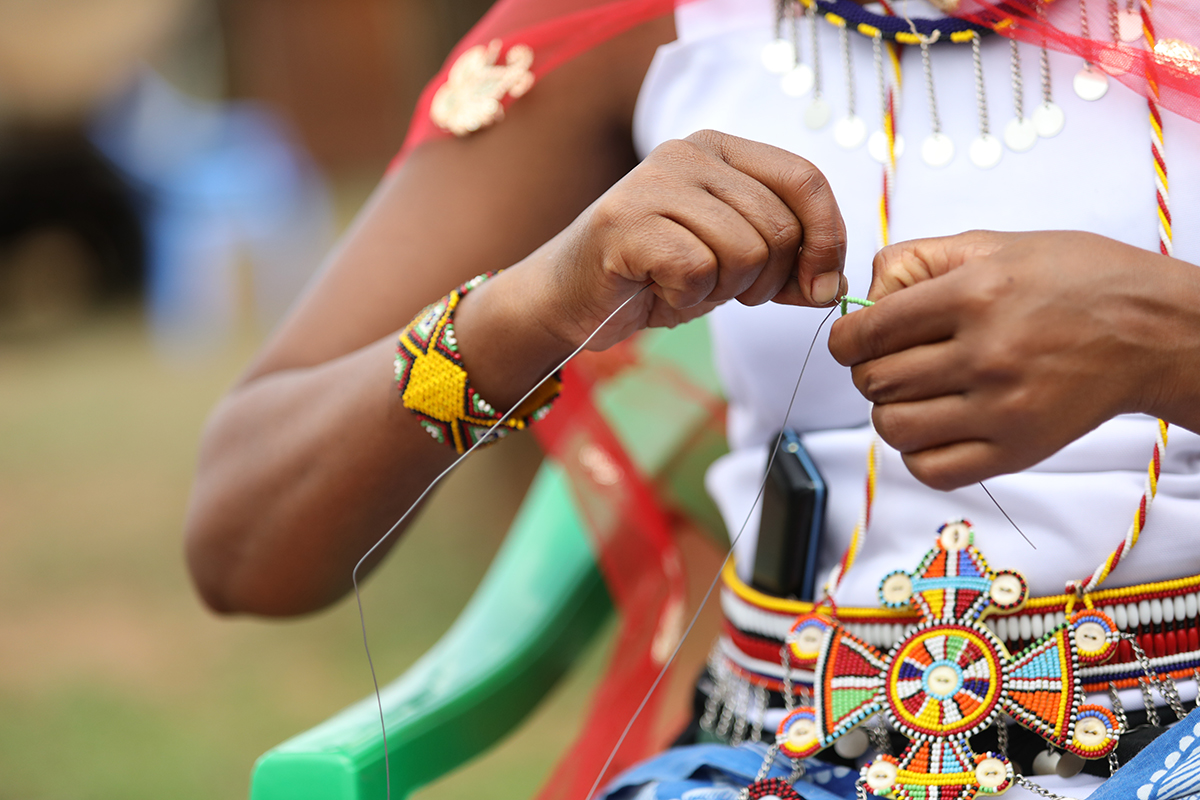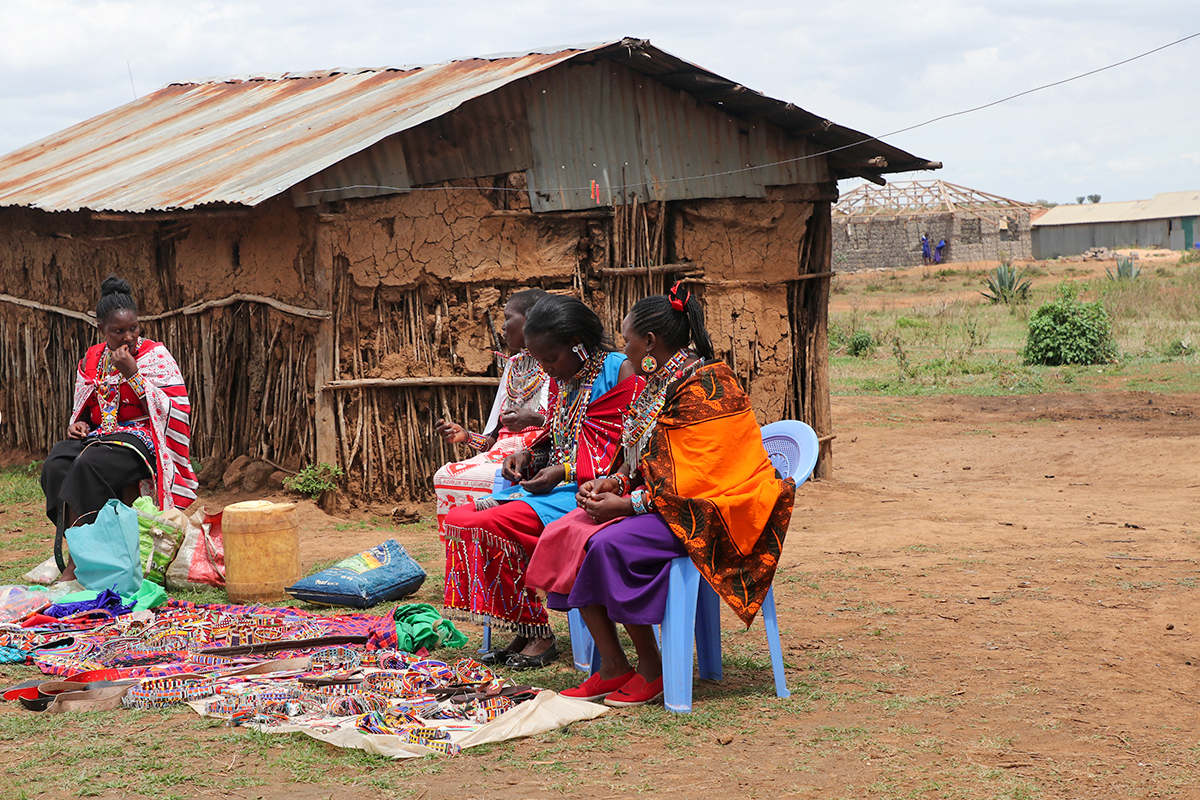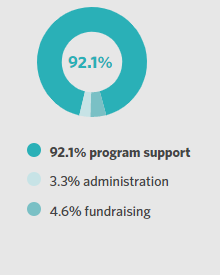building business
Traditionally Maasai men, including Helen’s husband, William, are herdsmen. As population growth and urban sprawl push the Maasai off their pastoral lands, young men have sought jobs in the city, often providing security in tourist areas. Women typically take care of the family, home and animals. Helen and others in her community also sell their beadwork to tourists at the
market in Nairobi.
After her 11-year-old daughter, Patricia, was sponsored, Helen joined the local Unbound mothers group and eventually took out a loan of 10,000 Kenyan shillings, about $97 in the U.S. She used the money to buy more beads for her business.
Since her daughter was sponsored by Frank and Mimi in Virginia, Helen has used sponsorship support to pay for school fees, uniforms and books. She also purchased bedding, a gas cooker so her family doesn’t have to breathe smoke from firewood, and a solar lamp so they don’t have to worry about running out of kerosene.















